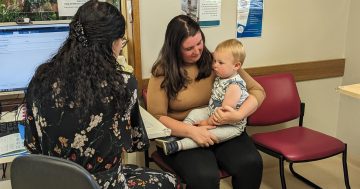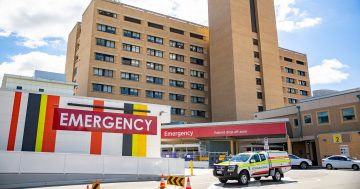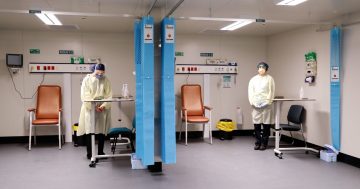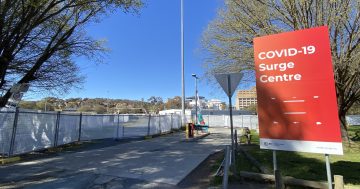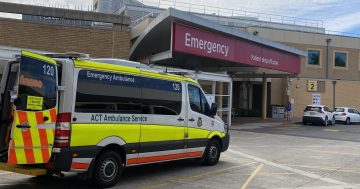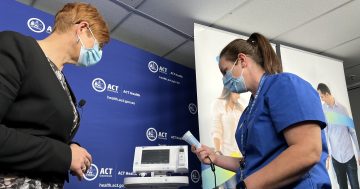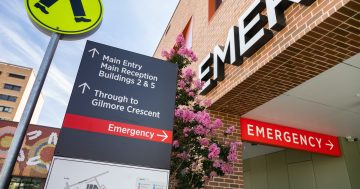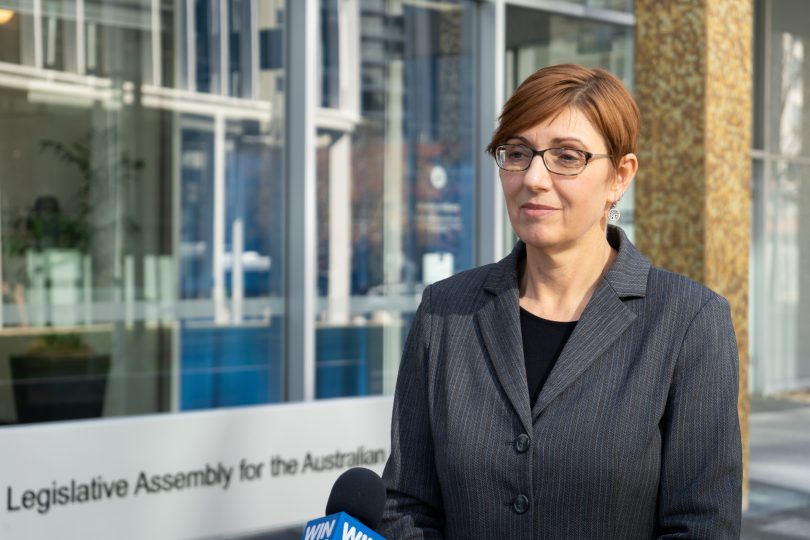
Health Minister Rachel Stephen-Smith said it was important to minimise travel to the ACT from hotspots. Photo: Dominic Giannini.
Concerns have been raised about seeding in regional NSW as COVID-19 again creeps closer to Canberra.
When asked about “a ring of steel” around Greater Sydney, as proposed by Victorian Premier Dan Andrews, ACT Health Minister Rachel Stephen-Smith said it was important to minimise any travel into the Territory from Sydney and other hotspots.
“We have seen significantly reduced travel from Greater Sydney into regional NSW, particularly into the ACT, but it is very clear that we are still seeing some of that travel happening and cases seeded into regional NSW,” she said.
Areas like Goulburn and Marulan that lie on major highways would remain an exposure risk due to travel exemptions for truck drivers as the transport system needs to be maintained despite lockdowns, Ms Stephen-Smith said.
“It is not that surprising that we would see some of the exposure sites on major highway routes,” she said.
Testing arrangements for truck drivers will now be reviewed in the next week to make the process more consistent, Prime Minister Scott Morrison said after Friday’s National Cabinet meeting.
NSW Premier Gladys Berejiklian said that the state was developing a roadmap for restrictions that are expected to last until October.
Ms Berejiklian warned it would be impossible for the state to open up until most people are fully vaccinated.
She has previously used 80 per cent of people being fully vaccinated as a benchmark. Currently, less than 12 per cent of people in NSW are fully vaccinated.
In the ACT, the number is closer to 20 per cent.

Australians are being encouraged to get vaccinated as soon as possible as the delta outbreak worsens. Photo: Michelle Kroll.
NSW Chief Health Officer Dr Kerry Chant said the state needed to “correct the mythology” around AstraZeneca.
“In terms of AstraZeneca, I have had AstraZeneca. My husband has had his first dose of AstraZeneca. My mother-in-law has had two doses of AstraZeneca,” she said.
“So I just want to say that the Chief Health Officer would not recommend AstraZeneca to someone that they care about if they had concerns.
“In the context of the delta threat, I just cannot understand why people would not be taking the opportunity to go out and get AstraZeneca in droves.”
Dr Chant said that the use of Pfizer for young people who have not had the opportunity to get vaccinated needed to be considered due to not only the individual benefit but to stem the chain of transmission.
“What we are seeing is that people are bringing it into their household and infecting their relatives,” she said.
“The way we are seeing transmission happen is as soon as one case gets into a household, everyone is infected.
“That is because of the delta variant. You are infectious before you have symptoms so you do not have that luxury of separating people. They are already exposed.”
Doses of AstraZeneca remain in abundance in NSW and the ACT due to mixed messages from Australia’s premier vaccination advisory body and the remote risk of blood clots which have deterred some people from getting the jab.
Ms Stephen-Smith said the Territory was experiencing less hesitancy than other jurisdictions, but she encouraged people to talk to their doctors about receiving the AstraZeneca vaccine.
“People think that because they are 60 or older, their lives are deemed to be less valuable,” she said.
“It is actually because the risk of an adverse event with AstraZeneca reduces with age, and the risk of a really bad outcome from COVID increases with age.”
NSW Health Minister Brad Hazzard used stronger language on Friday, saying people in Sydney should be “getting the vaccine that is available”.
“There are oceans of AstraZeneca in NSW. There are also vast amounts of virus in the south-west and Western Sydney,” he said.
“All we are saying at the moment is, your obligation to yourself, your community, to NSW and indeed Australia – because this could leak further into other states – is to go and get the jabs of AstraZeneca.”
NSW has allowed people over the age of 40 to book in for an AstraZeneca jab at its state-run hubs; however, only people over 60 can access them at government-run facilities in the ACT.












